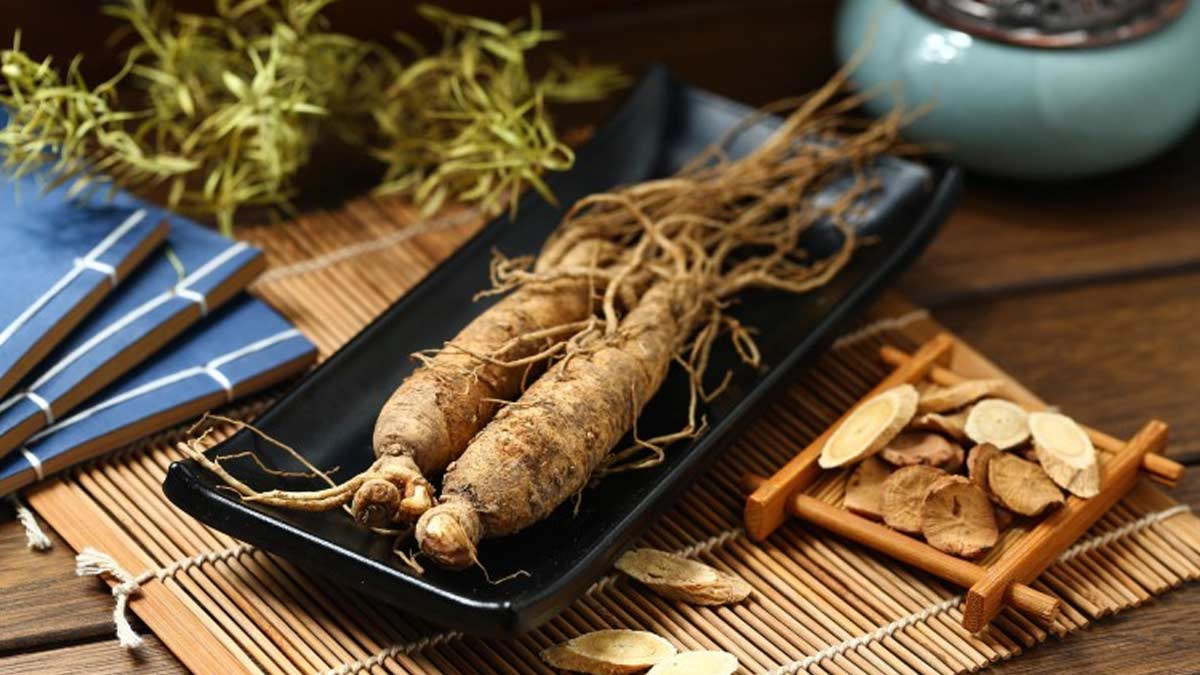
Lately, the glass skin- the smooth, illuminated, and impeccable-looking Korean complexion, has been an often desired achievement. Among the most effective ingredients to help you achieve this bright complexion is ginseng. While already proven to have been beneficial in terms of health over the centuries, the root could be equally potent in changing one's skin when used in skincare. Let's unlock the ancient root's magic and discover how adding ginseng root into your daily routine may rejuvenate and transform your skin.
Table of Content:-
The Magic of Ginseng in Skincare
Ginseng, scientifically known as Panax ginseng, is a perennial plant hailing from the forests of Eastern Asia. It has been a part of traditional Chinese medicine and Korean beauty regimens due to its adaptogenic properties and high content of phytonutrients. When used topically, the advantages of ginseng can be numerous and all contribute to giving you glass-like skin.

Antioxidant properties
Ginseng is rich in ginsenosides and flavonoids. Both are strong antioxidants that counteract free radicals—unstable molecules that cause damage to skin cells and fasten the ageing process. These properties of ginseng have a skin-protecting role that will help prevent premature ageing and give your skin the look of youthfulness and shine, an attribute that is the essence of a smooth and clear complexion characteristic of glass skin.
Also Read: Ashley Judd Diagnosed With 'Sleep Disorder' After Prolonged Health Battle; All About Sleep Disorders
Skin Renewal and Regeneration
Perhaps one of the best virtues of ginseng is its ability to stimulate skin cell turnover. The active components found in ginseng stimulate the synthesis of new skin cells. This property can help replenish dull-looking skin and also diminish the look of fine lines and wrinkles, hence, paving the way for healthier and more radiant skin. Improvement in texture and tone, the vital elements of a glass skin look, can be achieved with regular use of ginseng-spiked beauty goodies.
Anti-Inflammatory Properties
Ginseng's anti-inflammatory nature proves to be especially beneficial for those with sensitive or acne-prone skin. It provides comfort to irritated skin and reduces redness, making the complexion even. When inflammation is soothed, ginseng prevents the occurrence of blemishes and promotes clear, healthy skin.
Improved Blood Circulation
Topical ginseng application promotes blood circulation. It means that more oxygen and essential nutrients get delivered to the skin cells. With an increased blood flow, the skin looks and feels healthy, giving a brighter and radiant appearance. The improved blood circulation also supports the skin's natural ability to heal and repair the damage, keeping a youthful appearance.
Stimulates Collagen
Definitely. It stimulates the production of collagen. Collagen is one of the components needed by the skin to be elastic and firm. The stimulation of collagen helps to improve skin texture and minimise the appearance of fine lines and wrinkles on the skin, thus a valuable addition to any anti-ageing skincare routine.
How to Use Ginseng in Your Skincare Routine
For these very benefits, you need to check out skincare products that offer ginseng. The products with ginseng can come in the form of serums, creams, masks, and cleansers. Here is what you have to do:
Bottomline
Consistent use of ginseng-infused products will, however, boost your skincare regimen and bring you closer to achieving the clean, glowy, and youthful look that is the very essence of Korean glass skin. So, hold on to this ancient root; the magic is bound to get revealed on your skin.
Also watch this video
How we keep this article up to date:
We work with experts and keep a close eye on the latest in health and wellness. Whenever there is a new research or helpful information, we update our articles with accurate and useful advice.
Current Version